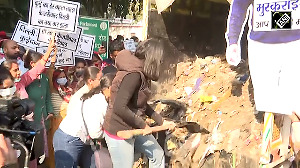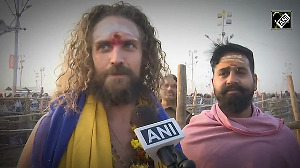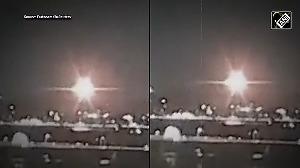The Supreme Court on Thursday dismissed a batch of pleas seeking an independent probe into the alleged mysterious death of special Central Bureau of Investigation judge B H Loya, who was hearing the high-profile Sohrabuddin Sheikh fake encounter case.
Following is the chronology of events.

December 1, 2014: Loya dies of cardiac arrest in Nagpur, where he had gone to attend the wedding of a colleague's daughter.
November 2017: The issue comes under spotlight after media reports quote his sister fuelling suspicion about the circumstances surrounding Loya's death and its link to the Sohrabuddin case.
January 11, 2018: SC agrees to hear two pleas seeking independent probe into Loya's death.
January 12: SC terms "serious matter" the alleged mysterious death of Loya, seeks response from Maharashtra government.
January 16: SC says Maharashtra government can decide which documents relating to the death of Loya could be handed over to the petitioners.
January 22: Terming "serious" the issues raised in the pleas on death of Loya, SC transfers to itself two petitions related to Loya's death from Bombay high court.
January 31: Former Navy chief Admiral (retd) L Ramdas moves SC seeking an independent inquiry into the matter by a panel of retired apex court judges and former police officers.
February 2: SC says it was concerned only with the death of Loya and would not go into other aspects including Bharatiya Janata Party chief Amit Shah's discharge in the Sohrabuddin Sheikh case.
February 5: A Mumbai lawyers' body decides to petition SC, seeking cross-examination of 11 people, including two judges, in connection with Loya's death.
February 9: Maharashtra government opposes pleas seeking independent probe into the matter, terming them "motivated" and based on "yellow journalism".
February 12: Maharashtra government tells SC the statements of four judges, who were with Loya on the last day of his life and had termed his death "natural", were "unimpeachable".
February 19: SC says it was treating Loya's case with utmost seriousness and for a cause. The same day senior advocates for petitioners say pressure being exerted on them to leave the case.
March 5: SC says change of roster in Bombay HC a routine affair, adds questions should not be raised over the change in the judge hearing the Sohrabuddin Sheikh case in the HC.
March 8: SC takes umbrage over accusation by senior lawyer for casting aspersions on judges that they were only asking "searching questions" to those who brought the Loya death case before it, and not to the Maharashtra government.
March 9: Maharashtra government comes down heavily on alleged accusations, bullying and browbeating of judges in the SC by some activist lawyers in the Loya death case and said the judiciary and judicial officers need to be saved from such averments.
March 9: Centre for Public Interest Litigation, an intervenor NGO in the case, says Loya may have died due to poisoning as he had complained of chest congestion.
March 12: A Mumbai-based lawyers' body brings on record in SC an order of the Bombay HC to allege that one of the two judges, who had given statement in the Loya death case, had ordered settlement of a criminal case against a top BJP leader in 2014.
March 16: SC reserves verdict on pleas for probe into Loya's death
April 19: SC dismisses pleas seeking an independent probe into the case, saying attempts were made to scandalise and malign the judiciary by levelling serious allegations against judicial officers and judges of Bombay HC.









 © 2025
© 2025